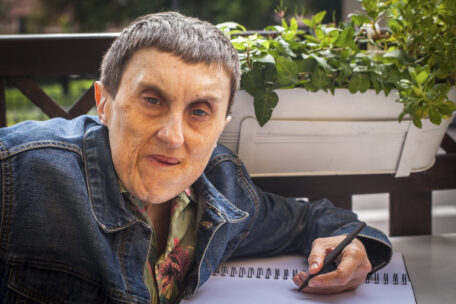If you aren’t granted Specialist Disability Accommodation (SDA) but still need housing and living support, there are several home and living support options available through the NDIS and other services. These options focus on helping you live as independently as possible while receiving the support you need.
-
Supported Independent Living (SIL)
Supported Independent Living (SIL) is for people who require daily support with personal care, cooking, cleaning and other household tasks. SIL funding does not cover rent or housing costs, it only funds the support workers who assist you at home. SIL is often provided in shared housing but can sometimes be arranged in private homes, depending on individual needs.
-
Individualised Living Options (ILO)
Individualised Living Options (ILO) helps people design a living arrangement that best suits their preferences and needs. This could include:
- Living alone with drop-in support.
- Co-residency, where a support worker lives in the home.
- Host arrangements, where you live with a supportive household.
- Living with a chosen housemate who provides support.
- ILO funding is flexible and personalized, focusing on helping participants live in a way that best supports their independence and lifestyle.

-
Private and Community Housing Options
If you are not eligible for SDA, you may still be able to access affordable, accessible housing through:
- Social or community housing (through state government or disability-friendly housing providers).
- Public housing with disability modifications.
- Private rentals with NDIS support for modifications.
- The NDIS may fund home modifications in a private or rental home if they are necessary for your safety and independence.
-
NDIS Short-Term and Medium-Term Accommodation (STA & MTA)
If you need temporary housing, the NDIS can fund:
- Short-Term Accommodation (STA) for up to 28 days, often in a respite setting.
- Medium-Term Accommodation (MTA) if you are waiting for long-term housing to be arranged.
These options can provide support while transitioning to a more permanent living situation.
-
Assistance with Daily Living (ADL) at Home
If you live in your own home, a rental, or with family, the NDIS may fund Assistance with Daily Living (ADL) to help with personal care, household tasks, and accessing the community. This is different from SIL because it is designed for lower levels of support, with workers visiting only when needed.

-
Co-Housing and Disability-Friendly Housing Providers
Some organizations and co-housing initiatives create accessible housing solutions for people with disabilities. These may be private or community-run housing projects that offer modified homes with shared or individual support services.
-
Family and Informal Support
If you live with family, the NDIS can fund respite care, assistive technology, and support workers to help reduce pressure on informal carers while increasing your independence.
Even if you are not approved for SDA, home and living options may be available as an alternative to ensure you receive the right level of support for your living situation.
Have you got SDA and looking for a property? You can use this link
Our sister company, Housing Services Australia also has available properties here.
